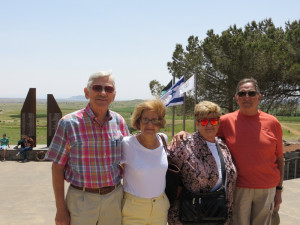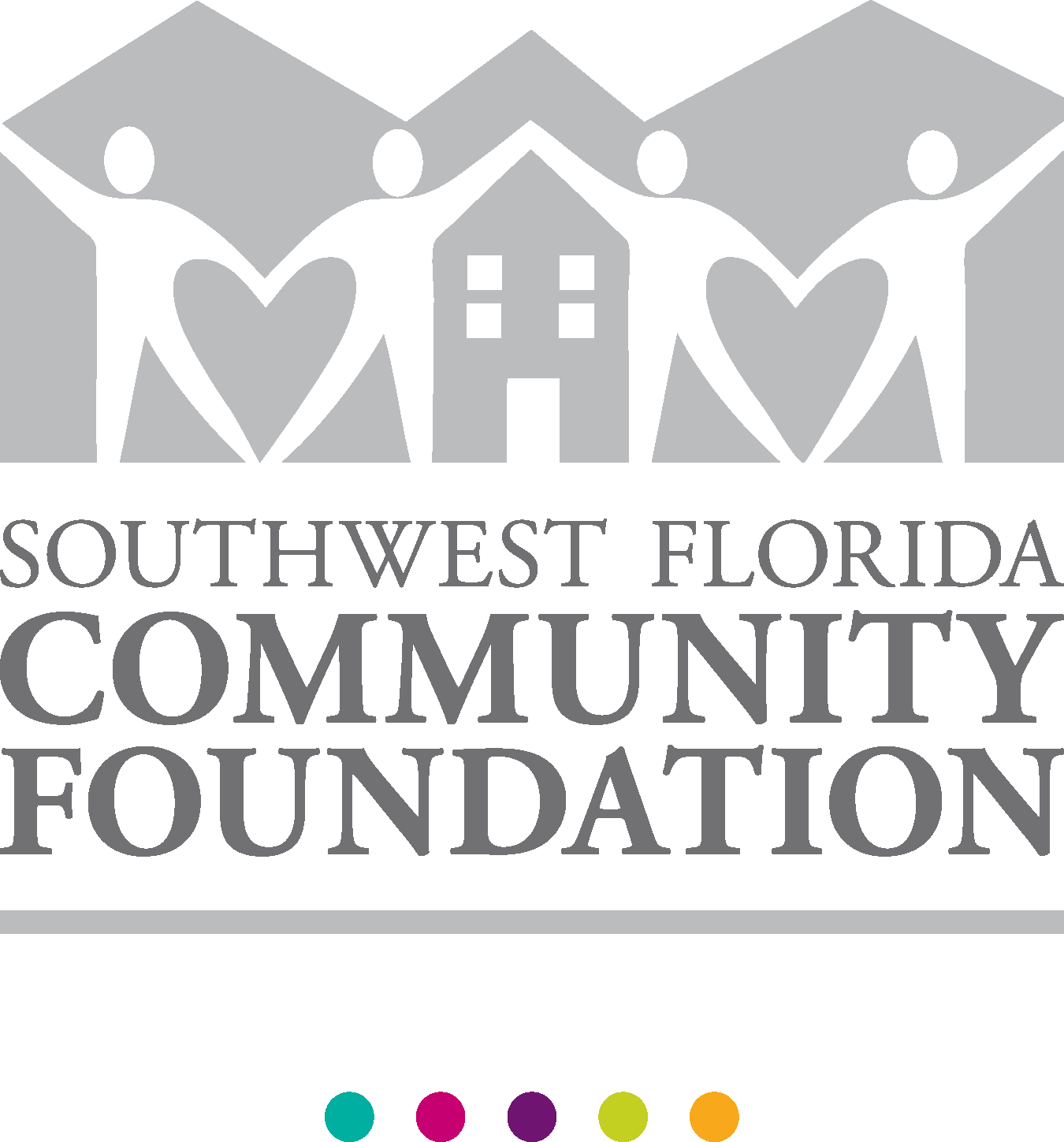[It’s been three months since I did my last direct client consulting, and I’m loving the transition to industry observer and kibitzer. I’ve got two major blog post series underway — one on persistent errors I see in the underlying object models of far too much HCM software (including brand new software) and one a series of rants about the sloppy (and sometimes deliberate) misuse of important terminology — and lots more to come. But first I’d like to finish this post that’s been waiting a year for me to digest and process all that we saw/heard/smelled/learned on our first (and for me life-changing) trip to Israel and Jordan in the Spring of 2014. Now this may be of no interest to you, and I will get back to business shortly, but first I want to share with anyone who’s interested what happened to me on this trip and why it was life-changing. My hope is that this post, most of which was written before last year’s Israeli/Hamas conflict erupted and without reference to it, will give readers a very personal backdrop to that conflict.]
It has taken me a long time to process all that we saw, smelled, heard, touched, tasted, etc., during our recent, first trip to Israel. It was a life-changing trip for me, and I don’t say that lightly. All travel is adventure travel, and Ron and I have done more foreign travel than most, but for me Israel wasn’t foreign — it was home. And that was just the first surprise.
Existential Threats
Until this trip, I never appreciated what Benyamin Netanyahu meant by the term “existential threat,” but even I could follow the clues that this trip provided. The first clue was the very odd route you fly from Istanbul to Tel Aviv. You stay way offshore until, at the last moment, you make a quick turn and an even quicker descent into Tel Aviv’s Ben Gurion Airport. The reason for that otherwise strange-looking route becomes obvious when you study the flight map: there are so many dangers along the more direct route, so many countries and/or militias which loath Israel, and so many terrorists with shoulder-fired rocket launchers who would love to take down a plane headed to Israel.
The second clue requires a more careful look at the map of Israel’s neighborhood and how that map has changed over the course of Jewish history. Studying that history, the reality of Israel’s small size and tough neighborhood hits home as does the fact that most every successive ruler of that part of the world has tried their hand at wiping out the Jewish people — not to mention the efforts of most every ruler of most every country into which the Jewish Diaspora took refuge. If everyone really is trying to get you, it’s not being paranoid to say so, and this is the truth of Jewish history.
The third clue was found in our visit to Independence Hall, formerly the art museum of Tel Aviv, which was the site from which Israel declared its independence to the world on May 14th, 1948. In a very modest white-washed former gallery whose art works are still hung where they were, with a simple table for the declarers and an even simpler setup for the provisional members of the provisional Knesset, we sat where the dignitaries then sat, we listened to that declaration, and we wept. Tears of joy for sure, but also tears of sorrow, because we knew that the joy of that announcement in 1948 was followed by the combined efforts of Israel’s neighbors to wipe our homeland off the face of the earth, to finish the job that Hitler could not. The young man who did the presentation could have been my grandchild, and he certainly didn’t hear about any of this first hand, but like every other young adult, he had served his time in the military and knew that there were still many of Israel’s neighbors who continued to hope, plan and work towards her destruction. At Independence Hall in Tel Aviv, in the very room where the State of Israel was born, you can feel that threat and the strength of Israeli to meet it.
The fourth clue, and the most powerful impression from our first day in Israel, came after we finished touring — Museum of the Diaspora, Itzhak Rabin Museum (which really covers the history of the Jewish State), and our visit to Independence Hall. We were sitting in a cafe having some wine and discussing the events of the day when a group of Israeli soldiers, men and women, came in laughing and sat down next to us with their automatic weapons in hand. Those young people, full of exuberance and the chatter of youth, were living life fully, even with an understanding that their country was facing an “existential threat,” that is a realistic threat from very capable enemies who are truly committed to their destruction.
Watching these young soldiers, three thoughts went through my head. The first was that we need to buy more Israel bonds, and we’ve done that. The second and more profound thought was that these soldiers are not only defending Israel’s very existence but also mine and that of Jews everywhere. But the third thought, which really surprised me, is that I am a Zionist, that I not only support Israel as the Jewish State but that I believe absolutely in our historical connection and rights to these lands.
From A Minority Living On Sufferance To A Majority Living Life Fully
On our second day in Tel Aviv, we had the most amazing experience ever at a museum when we visited the Palmach Museum. Here, instead of viewing exhibits, we were inside of them. The whole history of Israel’s fight for independence came alive through the stories of one Palmach unit, from their initial recruitment, through long years of training, to their being battled-tested, burying their dead and becoming a part of the new State of Israel’s IDF (Israeli Defense Forces). I didn’t think I could walk so far (many of you know that I have mobility challenges), but there was no way I wasn’t going to push myself to the limit, no matter the pain, as we became part of these young people’s pushing themselves to the limit in defense of their country. We emerged totally drained but understanding a lot more about the price paid for this amazing country, the price paid so that Jews won’t live — and die — at the mercy of whoever happens to run the countries in which we live.
For the Jewish people, who have been a minority across the Diaspora, living quite literally on sufferance from whoever happened to be in power at the moment, there is nothing sweeter than knowing that here, in Israel, we are the majority. Even with a sizable Jewish population in my American home town of the late 40’s/early 50’s, we were still taught to keep our heads down, not to call attention to ourselves, not to give our gentile neighbors any reason to think ill of us. So it was truly life-changing for me to be in a country where most people look like me (not the senior I’ve become but the young woman I was), where their sense of humor is the same as mine, and where their confidence and, yes, pushiness is a virtue and not something to be guarded against. No Jew lives in Israel on sufferance — under an existential threat, but not on sufferance. And again, as we rested after our tour of the Palmach Museum, I couldn’t help thinking about Zionism and what it mean to be a Zionist.
Borderlands: The Golan
If you use Google Earth to look for Metula, in The Golan, you can’t help but see the difference in the landscape on the Israeli versus Lebanese or Syrian sides of the borders. What you won’t see are the signs all along the roads on the Israeli side of the Syrian border warning you not to walk off the roads because of the zillions of land mines that Syria planted when they held that territory. You also won’t see — but we did because our guide knew where to look — the fortifications that the Syrians had been building on their side of the border whose only purpose could be offensive. Just days after we were there, the Syrian civil war pressed right up against the border with Israel, and tourists were discouraged from visiting this area for fear that the Syrian conflict could spill over. But we were able to see with our own eyes that there is so little protection for Israel from the next war her neighbors decide to start.
However, the most important learning from our trip to the Borderlands (my term), and our stay at Kibbutz Kfar Blum, had nothing to do with borders. When I was 11, being raised in an Orthodox Jewish home, and a very good Hebrew School student, I learned along with the other girls in my class that what was until then a completely integrated program with the boys our age would now become a split program. The boys would be prepared for their Bar Mitzvahs, and the girls would be prepared to run a Jewish home (think mid-50’s). This didn’t sit well with me (perhaps I was born with feminist sensibilities), and thus began my exodus from orthodox Judaism — but not from the values and cultural foundations of my childhood. And those foundations run very deep, not unlike the foundations of Jewish history in Israel. With each passing day in Israel, I found myself more connected to my own Jewishness and more aware of what that means to me now.
At Kfar Blum on our first morning there, on that Saturday Shabbat morning, I sat in the garden below the in-house schul, through whose open windows the sounds of male davining took me back to my childhood. There’s something about this place which awakened in me a sense of belonging, of being a part of something that goes back thousands of years and has resisted so many efforts to destroy it. When I look at the history of this part of the world, I understand now why using the term “Palestinians” to suggest that they are the authentic inheritors of this land has always made me crazy. Jews have been here from the beginning of recorded history as the archeological evidence makes clear, and it’s time everyone got used to the idea that this is our land, our place of birth. And we’re not leaving! So perhaps I’ve been a Zionist all along and just didn’t realize it?
Jerusalem of Gold
On May 4th, 2014, the sirens sounded in Jerusalem at 8:00 PM local time. In our hotel room at the David Citadel, we turned on the TV to see if we could figure out what was happening, and there was a service starting at the Wailing Wall to mark the start of Israeli Memorial Day. Watching that service, I couldn’t understand much of the Hebrew, but I knew what they were saying. In such a small country, where most everyone serves in the defense forces (IDF), every life lost defending Israel against three major attacks by her neighbors (1948 War of Independence, 1967 War and the Yom Kippur War in 1973), not to mention all the other skirmishes and Gazan wars, is a friend or family member, a classmate or bunkmate, a neighbor or fellow Yeshiva bocher. Israelis are all mishpocha, all family. I joined in when they recited the memorial prayer and again when they sang Hatikva, and it suddenly hit me that I too am mishpocha, that we are all mishpocha. And those brave men and women who were being memorialized died not just to create and preserve Israel but for the safety and future of the Jewish people.
On Memorial Day, May 5th, we began our day at The Western Wall, a place awash in its own history, surrounded by even more history, and arguably the most sacred place in the world for Jews of every flavor. To be there on Memorial Day was very special. Very early in the morning, we made our way there, my sister Marsha Bloom Weitz and I to the women’s section (yes, for once in my life I didn’t make a scene about this segregation by gender against which I railed loudly as a young orthodox woman), and my husband Ron Wallace and brother-in-law Irwin Weitz to the men’s section. Walking down the sloped plaza, performing the ritual hand-washing, then approaching the wall itself, I could feel the power of this place where so many have prayed for over three millennium, ever since the time of the First Temple. We said yahrzeit for those we’ve lost, special prayers for friends and family who were facing great health challenges and a general prayer for the good health of all we love (Marsha and I, by long tradition, pray only for good health), and then we said the special memorial prayer for those who have fallen in defense of Israel. I was fortunate to have two mothers, and I remembered both of them in Jerusalem: Sarah, my birth mother, died when I was too young to know her, and Bertha, who raised me as her own. Saying yahrzeit for both of them at the Wailing Wall, I knew that they were listening. After a long quiet period of prayer, we placed our prayer lists in a crack in these ancient stones, as is the custom. We stayed there, sitting quietly in the provided chairs, just absorbing the atmosphere. Tourists, ultra-orthodox women with their very conservative dress, and a young female soldier, automatic weapon slung over her shoulder, all praying together as though they had been neighbors for years. Mishpocha in our sorrow and in our triumphs, and reminded by the Western Wall and all that surrounds it of our many millenium claim to this land.
Is There A Path To Peace?
And just as I’ve relearned the history of the Jewish people, relearned my own history, I’ve seen firsthand why peace may not come in my lifetime. How do you make peace with someone who is determined to drive you into oblivion? How do you make peace with someone who raises their child to be a suicide bomber? How do you make peace with someone who hates you as much as many of Israel’s neighbors hate them? When you see in person the hard won agricultural miracle that is The Golan (you only need to see the awful, rocky landscape to understand with what effort and sacrifice the Israelis have created their farms), and you see a moonscape just feet away on the other side of the border, there’s living proof that Israel’s neighbors — and their wealthy co-religionists across the Arab world — haven’t begun to raise the standard of living which would give their own people a comparable quality of life. No wonder their people are pissed, and it’s a lot easier to direct that anger toward Israel and the Jews than to take responsibility for it.
I feel tremendous gratitude toward those Israelis on the front lines of ensuring that never again will Jews under threat from mounting anti-semitism or worse be without a homeland — and that threat is as real today as it ever was. It saddens me mightily to think that there won’t be real peace between Israel and all her neighbors in my lifetime. Although I sure don’t see a way forward to make peace with the Hamas terrorists, I’ll keep praying that someone will figure out how to do this because the children of Israel and of her Middle East neighbors deserve to grow up in a better neighborhood than they have now.
So When Did I Become A Zionist?
It’s often easier to see what happened when you’re looking back than when you’re in the moment. Was it when I was sitting in Independence Hall and listening to that scratched recording of the Declaration from 1948? Was it when I was struggling with my mobility issues but determined to complete the Palmach Museum’s living exhibition out of respect? When I was touching The Wall and, in doing so, establishing my own personal, physical connection to the many thousands of years of Jewish history in this place? Or seeing the stark difference between what Israelis and Diaspora Jews have done with their corner of the desert compared to what hasn’t been done for many of their Arab neighbors by their own leadership and Diaspora? Perhaps it happened when I was feeling for the first time what it’s like not to be a minority keeping my head down so as not to offend (and who among my American or European Jewish friends hasn’t been embarrassed by a too loud or too pushy member of the “tribe”)? Or maybe it was seeing those young Israelis with their automatic weapons in every cafe and plaza, each of whom has pledged their own lives to ensuring that no Jews will ever again have to live on sufferance because now we have a homeland? I really don’t know when or how the change in my thinking occurred, and it doesn’t matter. I went to Israel as a tourist, and I returned as a Zionist.
[We saw a lot more of Israel on last year’s first visit, and we made an amazing side trip to Petra in Jordan, which is a must. My travelogue notes from the road for family and friends documented the whole trip, as I try to do on every such trip. But for this blog post, I wanted to focus on my very personal reaction to visiting Israel for the first, but not the last time. We’ll be returning next year and, hopefully, many more times. Perhaps on our next trip, we’ll have time to visit some of the amazing high tech startups that Israel is producing at a rate that impresses even Silicon Valley.]







Hi, Appreciable share. The first time when I visited the place by Mantis Tourism & Attractions, my first impressions of Jordan were of the legendary Pyramids, West Valley of the Kings and beachside bliss in Egypt to the rest desert of Wadi Rum, the stunning Red Rose City of Petra and the incredibly buoyant Dead Sea. I never felt unsafe or in particular danger. For more safety it’s that simple – Research, plan, prepare and book – then come to Jordan and have an absolutely wonderful time! Enjoy the temples, Uncover Roman ruins in Jerash, enjoy looking at the everyday life which in many ways has not changed for thousands of years and relax! There has not been and probably will not be a better time to come to Jordan.
After resisting the trip for decades, I’m sold. I’m going. A truly moving piece for other members of the tribe, Naomi.